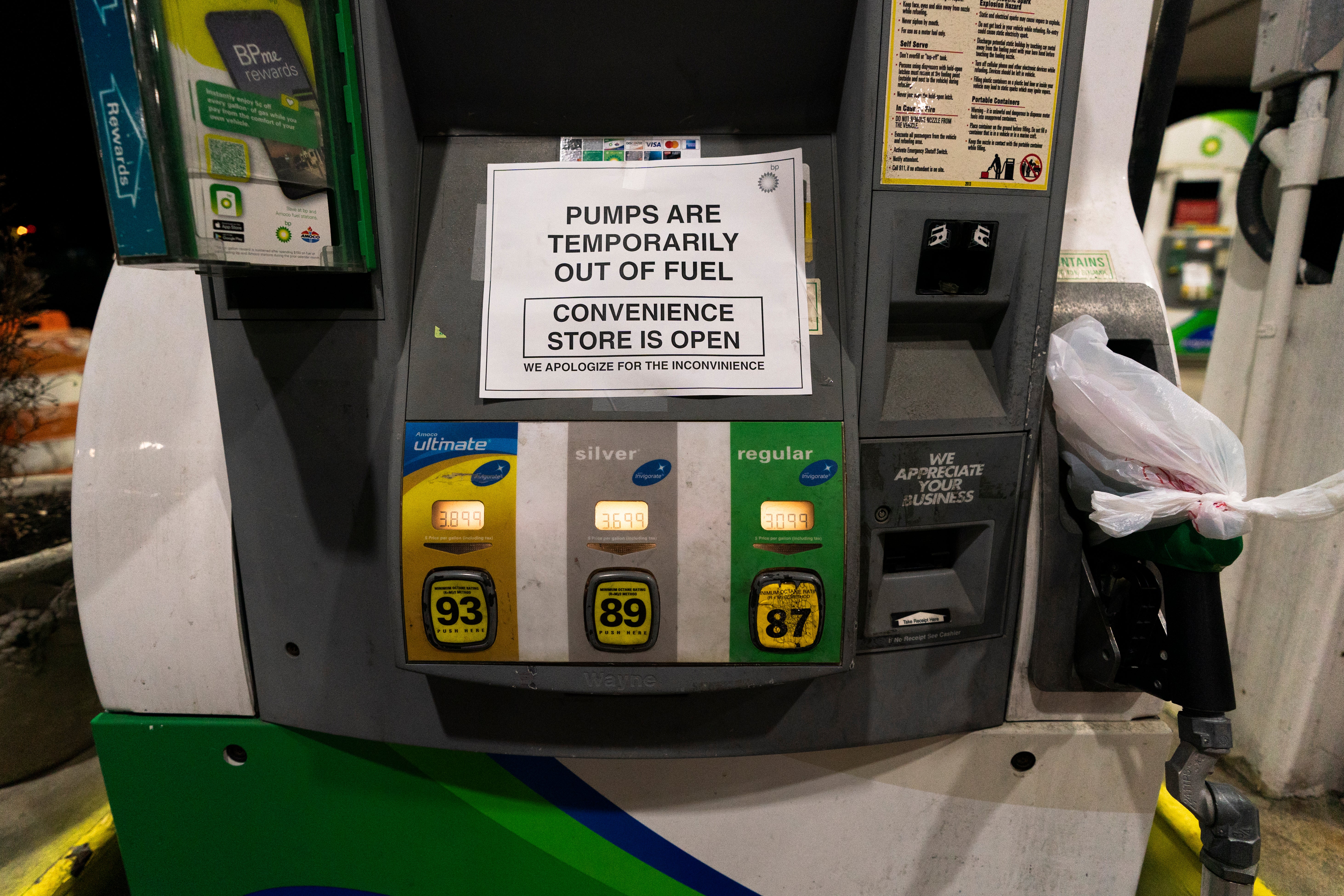Gas crunch from cyberattack intensifies in nation's capital
Gas shortages at the pumps are spreading from the South to the Mid-Atlantic states, where Virginia and the District of Columbia have become some of the hardest-hit areas following a cyberattack that led to the shutdown of the nation's largest gasoline pipeline

Your support helps us to tell the story
From reproductive rights to climate change to Big Tech, The Independent is on the ground when the story is developing. Whether it's investigating the financials of Elon Musk's pro-Trump PAC or producing our latest documentary, 'The A Word', which shines a light on the American women fighting for reproductive rights, we know how important it is to parse out the facts from the messaging.
At such a critical moment in US history, we need reporters on the ground. Your donation allows us to keep sending journalists to speak to both sides of the story.
The Independent is trusted by Americans across the entire political spectrum. And unlike many other quality news outlets, we choose not to lock Americans out of our reporting and analysis with paywalls. We believe quality journalism should be available to everyone, paid for by those who can afford it.
Your support makes all the difference.Gas shortages at the pumps are spreading from the South to the Mid-Atlantic states, where Virginia and the District of Columbia have become some of the hardest-hit areas following a cyberattack that forced a shutdown of the nation’s largest gasoline pipeline.
The tracking service GasBuddy.com on Friday showed that 86% of gas stations were out of fuel in Washington, D.C., more than half were out in Virginia and 42% of Maryland stations were dry. More than 70% of stations were without gas in North Carolina, and more than half were tapped out in Georgia and South Carolina.
A gas station owner in Virginia said panic buying is the problem.
“It’s like a frenzy,” Barry Rieger, who owns a gas station in Burke, Virginia, told WJLA-TV.
Georgia-based Colonial Pipeline on Thursday reported making “substantial progress” in resolving the computer hack-induced shutdown. It said operations had restarted and gasoline deliveries were being made in all of its markets. It will take “several days” for things to return to normal, and some areas may experience “intermittent service interruptions during this start-up period,” the company said.
At least five North Carolina school systems announced Thursday that they would shift to remote learning as the gasoline supply crisis continued. Among them: Durham, Franklin, Vance and Wake counties, which canceled in-person learning for Friday. The email sent to parents in the Wake County system, the largest in North Carolina, cites “the impact of the gas shortage on staffing availability and student transportation.”
Businesses were also feeling the sting.
At Dixie Speedway in Woodstock, Georgia, all the maintenance and safety vehicles have to be filled up before stock-car racing the next two Saturdays, but “all the gas stations close to use -- within a mile of us -- are out of gas,” said Mia Green, the track’s general manager. She’s heard of at least a couple of racetracks in the region that canceled upcoming races this weekend because race crews might not be able to get there due to gas shortages.
A cyberattack by hackers who lock up computer systems and demand a ransom to release them hit the pipeline on May 7. The hackers didn't take control of the pipeline’s operations, but Colonial shut it down to contain the damage.
President Joe Biden said U.S. officials do not believe the Russian government was involved in the hack. But he added, “We do have strong reason to believe that the criminals who did the attack are living in Russia. That’s where it came from.”
The Colonial Pipeline stretches from Texas to New Jersey and delivers about 45% of the gasoline consumed on the East Coast.
“We are not out of the woods yet, but the trees are thinning out,” Richard Joswick, global head of oil analytics at S&P Global Platts, said.
Gas stations should be back to normal next week if the pipeline restart goes as planned and consumers are convinced they no longer need to panic-buy fuel, Joswick said. Full recovery would take several more weeks, he estimated.